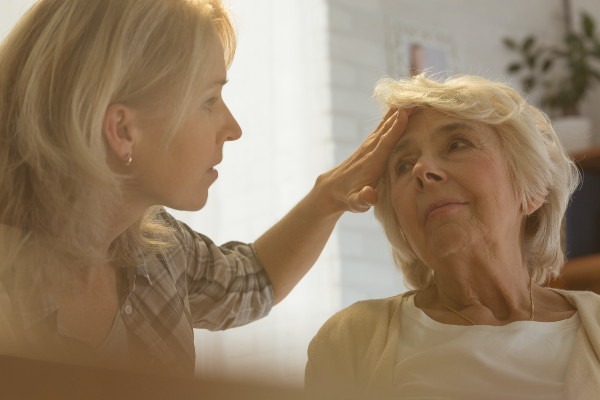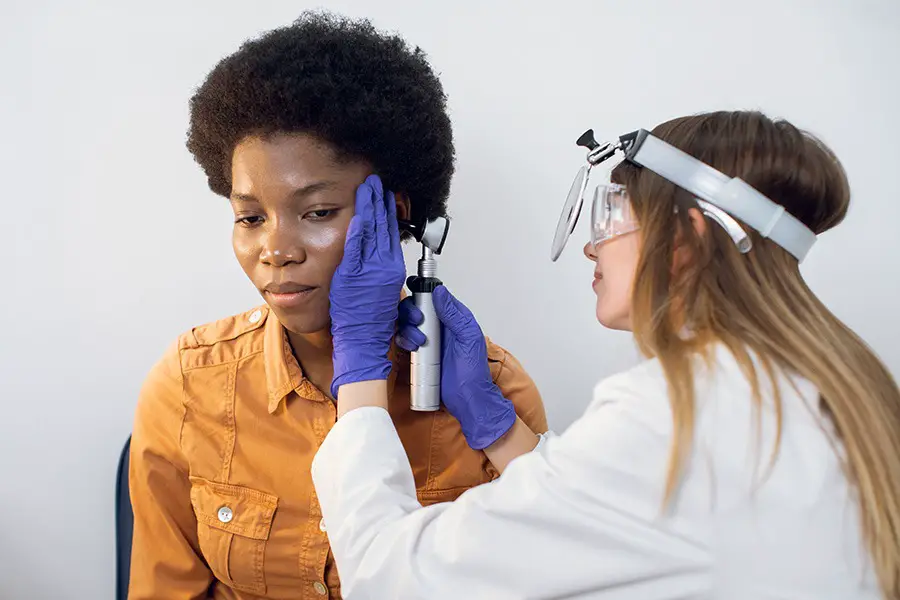Introduction
Sounds are an integral part of our lives. They enrich our experiences, from the soothing sounds of nature to the joyful laughter of our loved ones. But for some people, these sounds gradually fade away due to sensorineural hearing loss (SNHL). It’s a condition that affects millions of people around the world, and seniors are particularly vulnerable to it.
SNHL occurs when there is damage to the inner ear or the nerve that connects it to the brain. It can affect the ability to hear and comprehend speech, especially in noisy situations. However, there is hope and help for those who suffer from this type of hearing loss. With increasing awareness and knowledge, it has become evident that lifestyle choices have a significant impact on preventing or delaying SNHL. This post provides a comprehensive guide to help seniors understand how lifestyle changes can help prevent SNHL.
This guide covers various aspects of lifestyle modification, such as the effects of noise pollution, occupational hazards, healthy lifestyle choices, and the benefits of regular exercise. This guide aims to empower you to make informed decisions about your hearing health. It’s about preserving and enhancing your ability to enjoy the sounds of life for as long as possible.
OTC Hearing Aid Pair
Experience the world like never before with the RCA OTC Behind-the-Ear Hearing Aid. Our advanced digital technology ensures that every sound is crystal clear and vibrant, allowing you to fully immerse yourself in life’s experiences. Whether it’s the laughter of loved ones or the music that moves you, our hearing aid brings back the joy of every moment.
Say goodbye to the hassle of appointments and prescriptions. The RCA OTC Hearing Aid is designed to meet the needs of individuals without the need for a prescription. With its seamless setup and user-friendly design, you can effortlessly enhance your hearing abilities and stay connected to the world around you. Simply unpack, wear, and enjoy improved auditory perception instantly.
Experience optimal comfort and style with our discreet behind-the-ear design. The thin tube design allows you to wear glasses comfortably, so you can enjoy clear hearing while maintaining your personal sense of style. Plus, our rechargeable battery ensures long-lasting power, eliminating the inconvenience of constantly replacing small batteries. Elevate your hearing experience with the RCA OTC Hearing Aid and embrace the world with confidence.
https://www.hearing-loss.news/congenital-hearing-loss-a-comprehensive/
The Role of Healthy Lifestyle in Preventing Sensorineural Hearing Loss
A healthy lifestyle is essential for overall wellbeing, and it also plays a vital role in preventing sensorineural hearing loss. Regular check-ups and preventive health screenings can help identify early signs of hearing loss and allow for prompt intervention. A balanced diet rich in vitamins and minerals, especially those with antioxidant properties, can help protect the delicate structures of the inner ear from damage caused by aging or noise exposure.
Moreover, avoiding smoking and excessive alcohol consumption can also help protect your hearing. Both habits have been associated with an increased risk of hearing loss. While adopting a healthy lifestyle may not eliminate the risk of SNHL, it can certainly help slow its progression and, in some cases, prevent it.
Noise Pollution and Sensorineural Hearing Loss
The Need for Awareness
Noise pollution is a widespread yet often ignored problem. It not only disturbs peace but can also have serious consequences for hearing health. Prolonged exposure to loud noise, whether from traffic, construction, or loud music, can cause permanent damage to the hair cells in the cochlea, leading to SNHL.
Raising awareness about the harmful effects of noise pollution on hearing health is crucial. It’s important to understand the concept of safe listening levels and practice sound hygiene. Using noise-canceling headphones, limiting the volume of personal audio devices, and taking regular breaks from loud environments can help prevent noise-induced hearing loss.
Tinnitus: The Truth Behind That Annoying Ringing in Your Ears
Preventing Sensorineural Hearing Loss: An Occupational Perspective
Some occupations expose individuals to a higher risk of sensorineural hearing loss due to their noisy environments. These include jobs in construction, manufacturing, military, and music. In these professions, it is important to take precautions to prevent SNHL.
Employers and employees should work together to create safer work environments. This can involve implementing noise control measures, providing and enforcing the use of protective gear like earplugs or earmuffs, and conducting regular hearing tests. Through these measures, it’s possible to significantly reduce the risk of occupational hearing loss.
Protecting Your Hearing: Tips to Prevent Sensorineural Hearing Loss
When it comes to preventing SNHL, certain steps can be very helpful. Here are some tips:
Avoid exposure to loud sounds as much as possible.
Use hearing protection when involved in a loud activity.
Turn the volume down on personal audio devices.
Get your hearing tested if you’re at a higher risk of SNHL.
Follow a healthy lifestyle to protect your overall health and, in turn, your hearing health
The Link Between Exercise and Sensorineural Hearing Loss
Exercise isn’t just good for your heart, muscles, and mood – it’s also good for your hearing. Regular physical activity improves blood flow to the ears, supporting the function of the hair cells in the cochlea that are essential for hearing. Additionally, exercise contributes to better overall health and wellbeing, which indirectly affects hearing health.
That said, it’s important to ensure safety while exercising. Loud gym music or noise from cardio equipment can potentially harm your hearing. Consider wearing ear protection or using personal audio devices at a safe volume. Also, remember that specific types of exercise, like scuba diving or anything that changes your body’s pressure balance, can affect your ears, so proceed with caution and the necessary protective measures.
Hearing Aids and Sensorineural Hearing Loss: A Technological Journey
One of the most widely used and effective interventions for sensorineural hearing loss is hearing aids. Hearing aids are devices that amplify sound and deliver it to the ear. They have evolved significantly over time, from simple ear trumpets to sophisticated digital gadgets. Modern hearing aids have features such as noise reduction, directional microphones, and connectivity with other devices, which can enhance the hearing experience for people with SNHL.
The future of hearing aids is also promising, as researchers and developers are working on creating “smart” hearing aids that can analyze the sound environment and adjust accordingly. These hearing aids could also learn from user preferences and feedback and optimize their performance. These innovations show how technology can adapt to meet the needs of people with SNHL and provide them with better hearing solutions.
Tinnitus: why it’s still such a mystery to science
Conclusion
Sensorineural hearing loss, while common among seniors, is not an inevitable outcome of aging. Lifestyle choices significantly influence our hearing health. By embracing a healthy lifestyle, being aware of the threats of noise pollution, and understanding the potential occupational risks, we can effectively prevent or delay the onset of SNHL.
Exercise, often underestimated, serves as a powerful tool in maintaining not just our bodily health but our hearing health as well. Like any other health measure, it needs to be approached wisely, with an understanding of its implications on our ears.
Every step we take in protecting our hearing today paves the way for a future where we can continue to enjoy the symphony of sounds. Because every whisper of the breeze, every note of a loved one’s laughter, and every strain of our favorite song is a precious thread in the tapestry of our life experiences. Let’s make choices that help us savor these sounds for years to come.
We’re never too old to take steps to protect our hearing, and the journey towards auditory health is one that guarantees rich rewards. It’s the journey of staying connected to the world, of continuing to enjoy interpersonal communication, and of aging with grace and autonomy.
The symphony of life awaits you. Embrace the knowledge and make the choices that allow you to keep enjoying the music.

Decoding Silence: An Analytical View on the Advances in Conductive Hearing Loss Research and Treatment
This analytical article sheds light on conductive hearing loss, offering an in-depth exploration of its genetic factors, treatment advances, and promising experimental therapies.

Embracing the Melody of Life: Navigating the Journey with Conductive Hearing Loss
A blog post delving into the experiences and challenges of living with conductive hearing loss, discussing its impact on everyday life, social interactions, mental health, and the potential benefits of hearing aids and cochlear implants.





